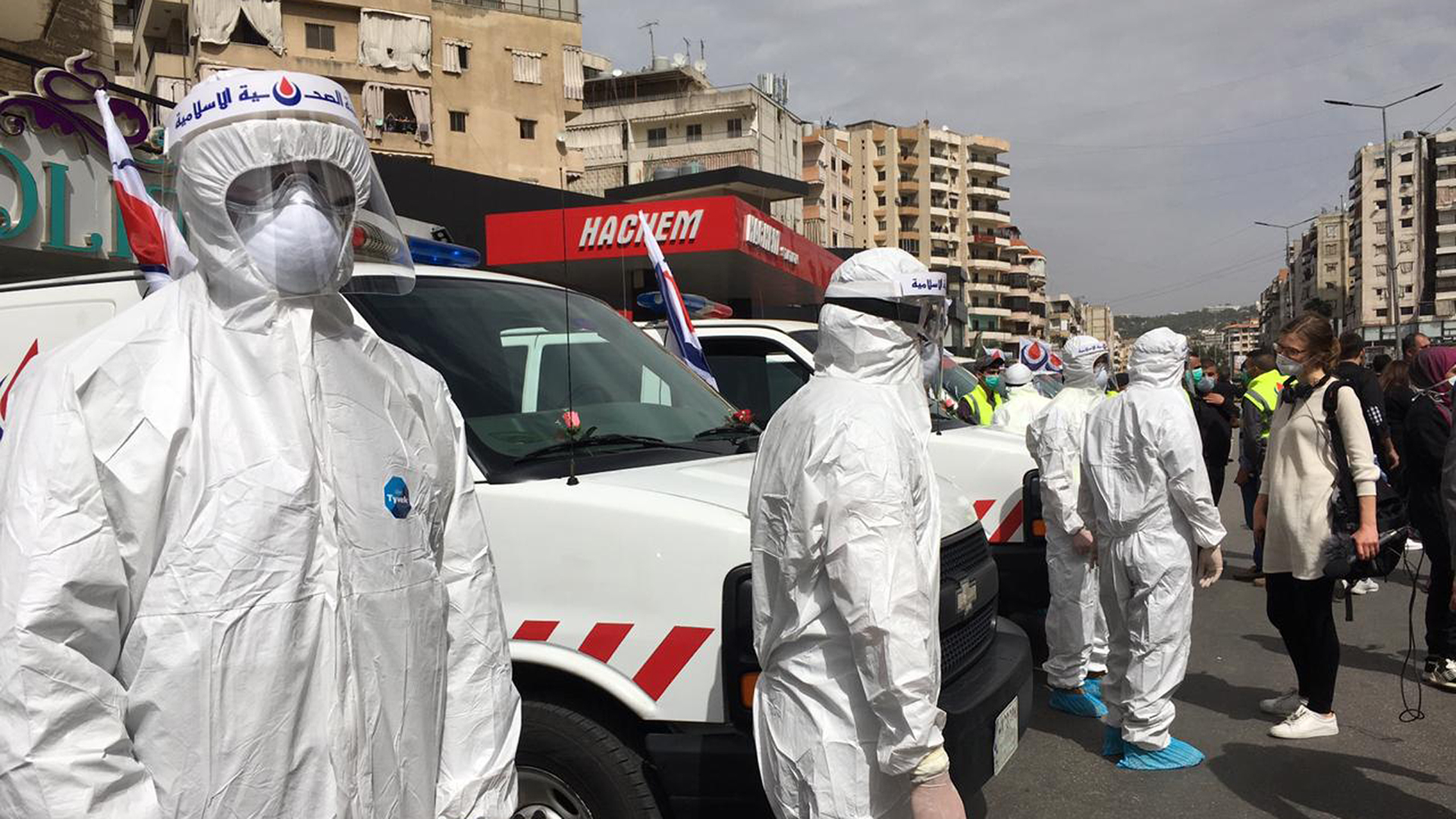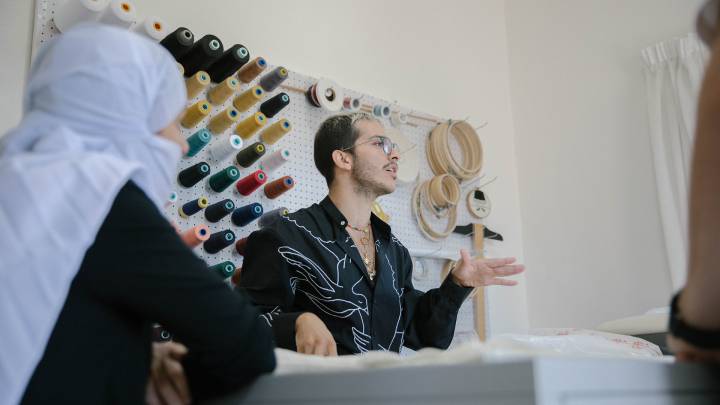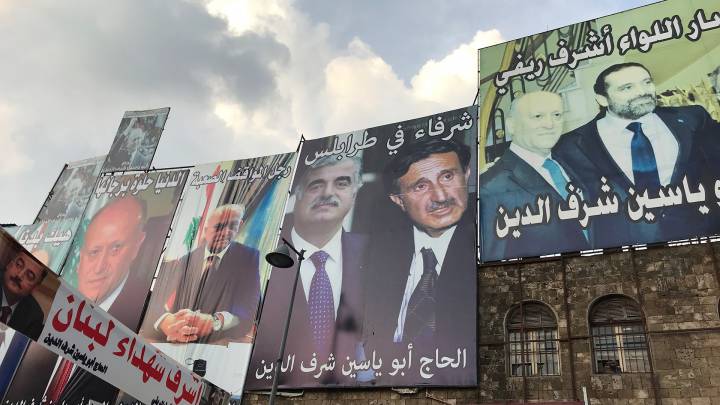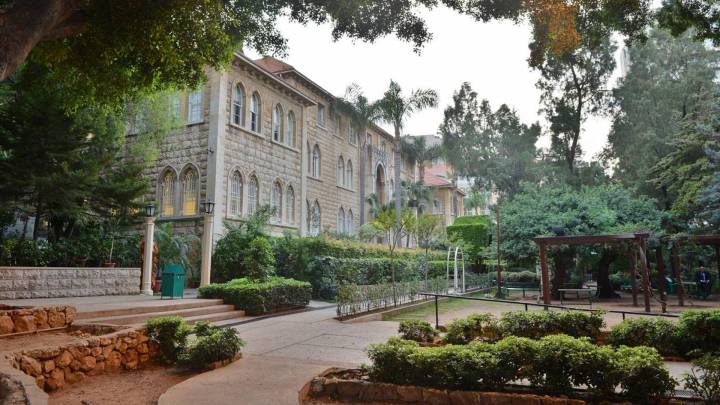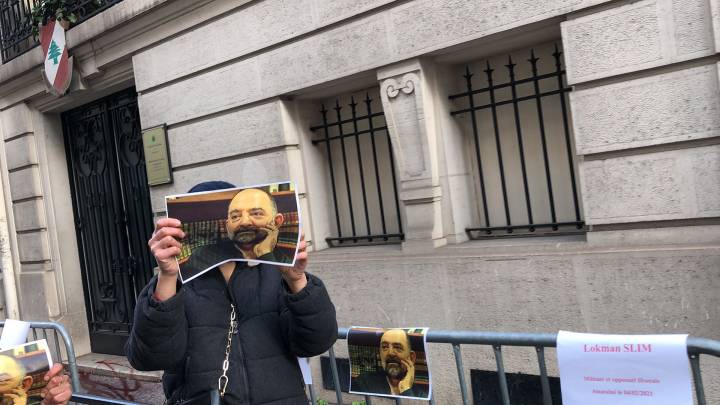As the coronavirus lockdown continues, charity may not be enough to save Hezbollah’s tarnished reputation among Lebanese Shia or to stem the increasing numbers of those infected with the virus. But the Lebanese are no strangers to staying at home.
A diamante-studded heart-shaped pendant twinkled between gold bangles and necklaces in a glass bowl placed on a table at a Hezbollah charity. The bowl was round, the size of a small flower vase and half-filled with ornaments. One of the ladies dressed in a chador, a full black veil, was recording all the donations received in cash and kind. She said that people gave their personal jewellery and savings to Hezbollah to help the group raise the money needed to combat coronavirus. An Iran-backed Shia militia and a political party, Hezbollah runs a state within a state, deriving support through its anti-Israel stance as well as community-based philanthropy.
The group had organised a tour for journalists to show off its preparedness to battle the virus, independent of Lebanon's government. It paraded its medics, displayed 33 ambulances with at least ten equipped with ventilators, and ordered volunteers to disinfect the streets. A hall in one of its properties in Beirut’s southern suburbs of Dahiye was packed with food supplies bought with the donations. Hundreds of packets of flour, rice, pasta, and canned chicken, beef and lamb had been purchased to help the poorest among those who had lost their jobs since the government imposed a lockdown on 16 March. The group has also fitted out Saint George Hospital in Beirut and dedicated it to the treatment of coronavirus patients. Dr Ali Noun, a physician at the emergency ward, said that the hospital had the capacity to treat 80 patients: “Hezbollah would pay for the treatment of all the coronavirus patients who get admitted here.”
However benevolent, the exercise was largely seen as the group's attempt to at damage control regarding it reputation. The first confirmed Covid-19 cases in Lebanon had travelled from Iran. Many in the small state on the shores of the Mediterranean worried that Hezbollah's relationship with Iran would exacerbate the spread of the virus and would have dire consequences for the country. The group has deep ideological and military links with Iran and Hezbollah's fighters work in close physical proximity with their Iranian counterparts. Hezbollah's fighters were deployed until recently to Idlib in northwest Syria alongside Iran's other militias, including presumably members of the Iranian Revolutionary Guard Corps [IRGC].
Even weeks after it became clear that Iran was a new host of the virus, flights from the country kept landing uninterrupted at the Lebanese capital’s Rafiq Hariri International Airport. Albeit in hushed tones, critics accused Hezbollah of preventing the country’s government from banning traffic between Lebanon and Iran soon enough.
It is important for Hezbollah to show its charitable side to the Lebanese population as well as assuaging concerns over the role of Iran returnees in the spread of infections throughout the country.
Hezbollah extracted thousands of Shia pilgrims and students before the Lebanese government cut-off air, land and sea travel with Iran and eventually shut down the airport. Those returning from Iran were then quarantined by the group in its strongholds. A move which stoked fears that these people were beyond the reach of doctors who were contact tracing, testing and tracking down anybody who could have come in contact with a positive case, in order to contain the spread of the virus.
Several Hezbollah officials confirmed that the group had indeed quarantined Iran returnees in their homes in southern Lebanon, a Shia dominated region completely under the control of Hezbollah. A senior Hezbollah official told zenith on the condition of anonymity that 1,200 Lebanese had been flown in from the Iranian city of Qom - a destination of Shia pilgrimage and the epicentre of the virus - and 1,500 students studying theology, medicine and engineering had been brought back from different parts of Iran. “They were quarantined in their homes.” He denied, however, that Hezbollah had hidden any confirmed cases: “None of them tested positive for coronavirus.”
Hezbollah has been under immense pressure domestically over its alliance with Iran, especially since the outbreak of the Syrian conflict. Support for the group, even among Shia communities, has been waning as the bodies of young Hezbollah fighters who died on Syrian battlefields have piled up. People are angry that these Lebanese participated in a war not to protect Lebanon but to sure up Iran's ally Bashar al-Assad. In the recent uprising in Lebanon, which started in October, protestors demanded the overthrow of the corrupt and established politicians including those from Hezbollah and its closest allies in the government.
It is, therefore, important for Hezbollah to show its charitable side to the Lebanese population as well as assuaging concerns over the role of Iran returnees in the spread of infections throughout the country.
Thus far, Lebanon has officially revealed just over 600 cases of infection and 20 deaths. Whilst concern remains over the accuracy of the numbers, top doctors attribute the low numbers to an early lockdown.
The suggestion to initiate a lockdown was first made by civil society, not the government.
Dr Abdur Rehman Bizri, a specialist in infectious diseases advising Lebanon's government on dealing with the coronavirus, said that he had been part of a team of Lebanese doctors who had begun monitoring the situation in mid-January while the virus was believed to be still within China. According to Bizri, Lebanon was quicker to impose a lockdown when compared to the US and Europe and the country learned from their Chinese counterparts on how to best deal with the crisis.
“It is possible that 30% infections remain silent for a variety of reasons but to say that the numbers have been deliberately underreported would be wrong.” Dr Bizri said: “We are contact-tracing each case and are hopeful that we will come out of this crisis with relatively less damage.”
The Lebanese, unlike their western contemporaries, have experienced violent conflict on their doorstep for decades. Whether during the civil war or the Israeli invasion or the time when Syrian boots were on the ground in Lebanon, they have responded quickly to shutdown calls and retreated to the safety of their homes. No one in Lebanon has described the lockdown as draconian. In fact, the suggestion to initiate a lockdown was first made by civil society, not the government.
Many say they would rather stay home now and survive a little longer than be failed by a defunct health care system further down the line.
Ali, a waiter at a once packed bar, said that the Lebanese response was different owing to a lack of faith in the government and the country's health infrastructure: “We know that if something happens to us, healthcare would either be unavailable or too expensive.” Even before the crisis, Lebanese hospitals were already struggling to import life-saving medicines because of a shortage of dollars in the country. Over the last few months, the Lebanese pound has tumbled and lost 40% of its value.
While banks have imposed restrictions on capital transfers and withdrawals, the government has defaulted on its debt to international lenders. It is a hard choice for Lebanese citizens to stop working at a time when the economy is spiralling downward spiral and the country on the verge of collapse. But many say they would rather stay home now and survive a little longer than be failed by a defunct health care system further down the line.
Prevention is the only path for Lebanon and the people are hoping that the current storm will pass without much devastation. But if the situation worsens and the numbers rise, Hezbollah's half-filled bowl of gold and an 80-bed hospital may not be of much help.
